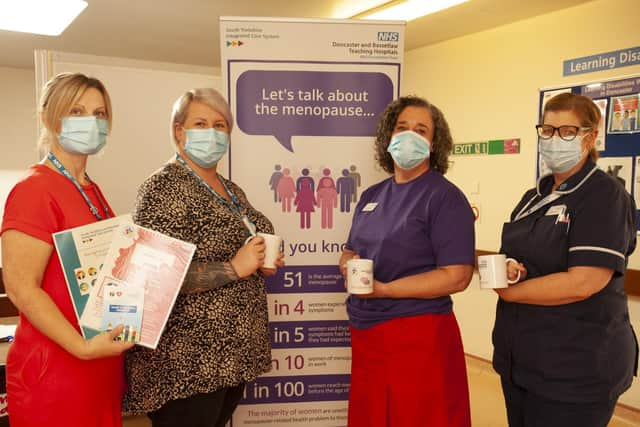Worksop hospital bosses train 'menopause advocates' to support staff
and live on Freeview channel 276
The menopause usually occurs in women aged 45-55, when their ovaries run out of eggs and hormones oestrogen, progesterone and testosterone fall.
A Doncaster and Bassetlaw Teaching Hospitals NHS Trust spokesman said: “Menopausal symptoms can last many years and even decades for some women. These symptoms can include hot flushes, anxiety, insomnia, problems with concentration and memory, fatigue, headaches, muscle and joint pains, urinary symptoms and low mood.
Advertisement
Hide AdAdvertisement
Hide Ad“For many women, these are debilitating symptoms that adversely affect their daily life, work, relationships and also their future health, as menopausal women have a greater risk of heart disease, osteoporosis, diabetes, clinical depression and dementia.”


Eleven DBTH staff members have now been trained as ‘menopause advocates’. They can deliver presentations, support individuals by providing information and can advise on reasonable adjustments which can be undertaken at work.
Zoe Lintin, DBTH chief people officer, said: “Our trust has a predominantly female work force, with 13 per cent being of the average menopausal age of 51-55.
“Employees of all ages and genders need to be well informed about the menopause and how it could affect their colleagues and able to signpost to support and resources.
Advertisement
Hide AdAdvertisement
Hide Ad“This is a fantastic developmen and I am proud colleagues have put themselves forward to get involved.
“It is important to ensure women feel comfortable, confident and supported as they approach and experience the menopause. I hope this is something we will continue at the trust for a long time to come.”

